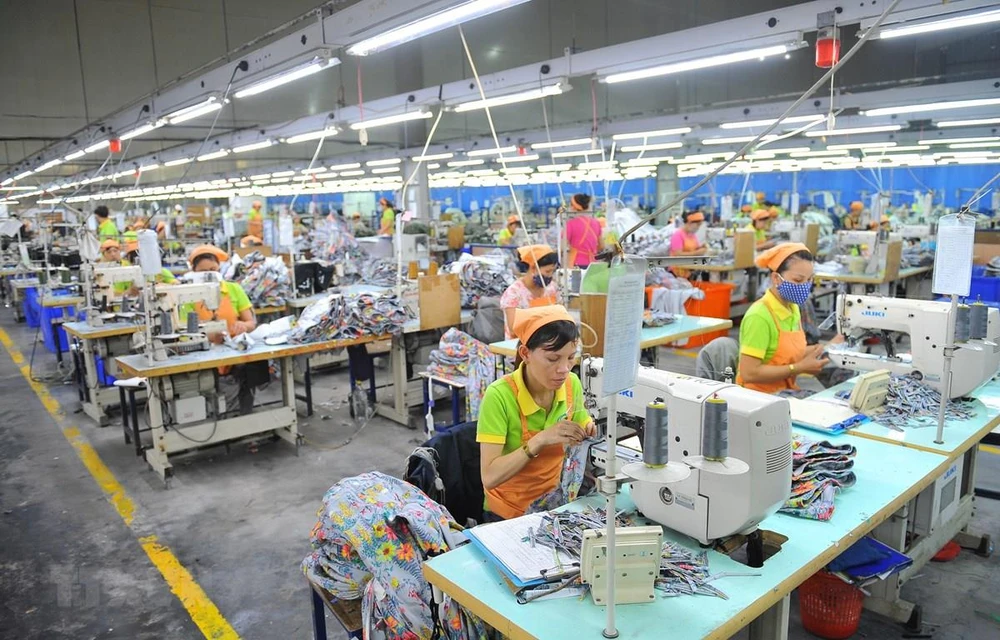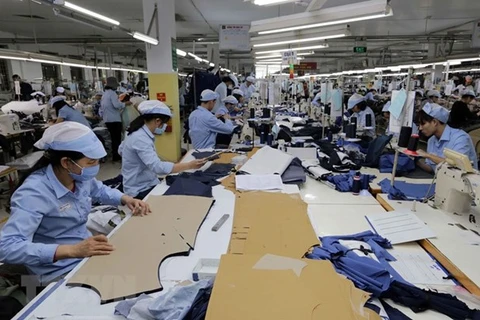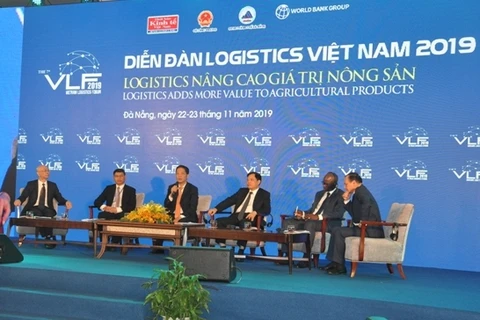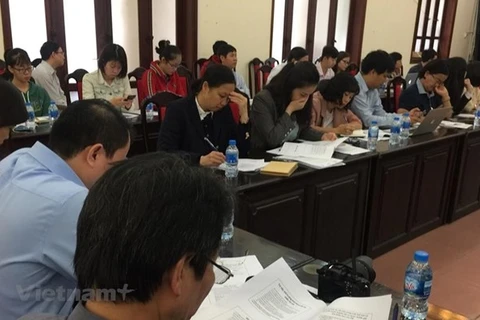
Hanoi (VNA) - Vietnam recorded a continuous increase in the number of newly established enterprises in the first 11 months, demonstrating the efficiency of improving the business investment environment, creating motivation for enterprises to develop, according to the General Statistics Office (GSO).
In Vietnam, more than 120,000 new businesses are established each year on average.
Currently, the Government is making great efforts to have the most favourable investment environment, thus improving the country’s global competitiveness index.
The number of newly established businesses keeps increasing
Data from the General Statistics Office shows that in November, nearly 12,300 enterprises were set up, an increase of 5.4 percent compared to the same period last year.
In October, the number of newly established enterprises reached more than 12,000. Especially, the number of businesses resuming operation in the month tripled last month’s figure and up 109.9 percent year on year.
In the January-November period, enterprises newly established and resuming operation totaled 163,600, up 6.8 percent.
Notably, the average registered capital of a newly established enterprise in the 11-month period reached a high level of 12.4 billion VND, a year on year increase of 22 percent.
During the period, the whole country had 126,700 newly registered enterprises with a total registered capital of over 1.57 quadrillion VND, a rise of 4.5 percent in the number of enterprises and 27.5 percent in registered capital compared to the same period last year.
If counting more than 2.1 quadrillion VND of additional registered capital of 36,500 enterprises, the total registered capital added to the economy in the 11 months of 2019 was 3.675 quadrillion VND.
In addition, the country saw 36,900 enterprises resuming operation, an increase of 15.7 percent year on year, bringing the total number of newly established enterprises and those back to operation in the first 11 months of 2019 to 163,600.
On average, the country had nearly 14,900 businesses newly and resuming operation each month.
Also in the first 11 months of this year, the number of enterprises temporarily suspended their operation was 27,800, up 7.1 percent year on year. Meanwhile those awaiting dissolution procedures were 38,100, up 39.8 percent.
Improving global competitiveness
According to the latest assessment of the World Economic Forum (WEF), Vietnam's Global Competitiveness Index (GCI) has risen to 67th place, up 10 places and 3.5 points in the last year.
Vietnam has also been recorded as the country with the highest increase in scores on the globe.
Commenting on the above achievement, President of the Vietnam Chamber of Commerce and Industry (VCCI) Vu Tien Loc said that Vietnam has achieved high results in the race to improve its position in the Global Competitiveness Index 2019 Rankings.
 Producing sausage at Nipponham Vietnam Food Joint Stock Company in the Long Hau Industrial Park, Long An province.(Photo: VNA)
Producing sausage at Nipponham Vietnam Food Joint Stock Company in the Long Hau Industrial Park, Long An province.(Photo: VNA) These initial results have proven the Vietnamese Government’s persistent efforts in the reform it has been implementing over the past time, he noted.
Vietnam's rise in the Global Competitiveness Rankings shows the determination and measures to improve the business and investment environment, promote creativity and enhance the competitiveness taken by the Government, ministries and agencies have initially brought in positive results.
However, in order to move forward in the global value chain, it is necessary to take concrete action and cooperation from both the Government and enterprises.
Phan Duc Hieu, Deputy Director of the Central Institute for Economic Management, noted that in the context of integration, especially when Vietnam joined and implemented Free Trade Agreements (FTA), to raise their global competitiveness, businesses must first improve their own production capacity and make their products competitive as compared to those from other countries.
In addition to short-term objectives, enterprises should focus on long-term goals and clearly define the ways they will pass through in the future, he said.
Meanwhile, the Government needs to implement fully and promptly solutions in economic restructuring, institutional reform and business environment and national competitiveness improvement, he added./.























